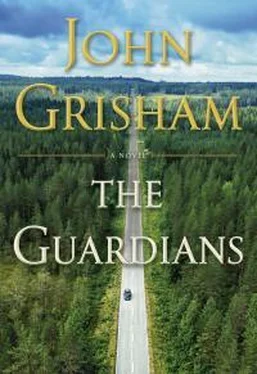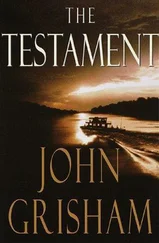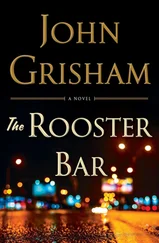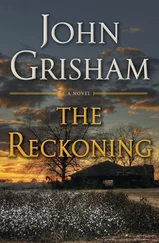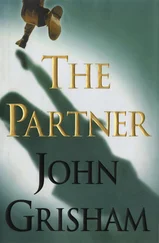Such an unfounded and ridiculous theory should have been exposed on cross-examination, but Duke’s lawyer was either drunk or napping.
The second expert was from the state crime lab. His area of expertise was, and still is, hair analysis. Seven pubic hairs were found on Emily’s body, and this guy convinced the jury that they came from Duke. They did not. They probably came from Mark Carter but we don’t know that. Yet. The local yokels in charge of the investigation had only a passing interest in Carter as a suspect, though he was the last person seen with Emily the night she disappeared.
Bite mark and hair analysis have been discredited in most advanced jurisdictions. Both belong to that pathetic and ever-shifting field of knowledge derisively known among defense and innocence lawyers as “junk science.” God only knows how many innocent people are serving long sentences because of unqualified experts and their unfounded theories of guilt.
Any defense lawyer worth his salt would have had a fine time with those two experts on cross-examination, but Duke’s lawyer was not worth the $3,000 the State paid him. Indeed, he was worth nothing. He had little criminal experience, reeked of alcohol during the trial, was woefully unprepared, believed his client was guilty, got three DUIs the year after the trial, got disbarred, and eventually died of cirrhosis.
And I’m supposed to pick up the pieces and find justice.
But no one drafted me into this case. As always, I’m a volunteer.
I’m on the interstate headed toward Montgomery, two and a half hours away, and I have time to plot and scheme. If I stopped at a motel I wouldn’t be able to sleep anyway. I’m too pumped over the last-minute miracle that I just pulled out of thin air. I send a text to the law clerk in Atlanta and say thanks. I send a text to my boss who, hopefully, is asleep by now.
Her name is Vicki Gourley and she works in our little foundation’s office in the old section of Savannah. She founded Guardian Ministries twelve years ago with her own money. Vicki is a devout Christian who considers her work to be derived straight from the Gospels. Jesus said to remember the prisoners. She doesn’t spend much time hanging around jails but she works fifteen hours a day trying to free the innocent. Years ago she was on a jury that convicted a young man of murder and sentenced him to die. Two years later the bad conviction was exposed. The prosecutor had concealed exculpatory evidence and solicited perjured testimony from a jailhouse snitch. The police had planted evidence and lied to the jury. When the real killer was identified by DNA, Vicki sold her flooring business to her nephews, took the money and started Guardian Ministries.
I was her first employee. Now we have one more.
We also have a freelancer named Francois Tatum. He’s a forty-five-year-old black guy who realized as a teenager that life in rural Georgia might be easier if he called himself Frankie and not Francois. Seems his mother had some Haitian blood and gave her kids French names, none of which were common in her remote corner of the English-speaking world.
Frankie was my first exoneree. He was serving life in Georgia for someone else’s murder when I met him. At the time, I was working as an Episcopal priest at a small church in Savannah. We ran a prison ministry and that’s how I met Frankie. He was obsessed with his innocence and talked of nothing else. He was bright and extremely well-read, and had taught himself the law inside and out. After two visits he had me convinced.
During the first phase of my legal career I defended people who could not afford a lawyer. I had hundreds of clients and before long I reached the point where I assumed they were all guilty. I had never stopped for a moment to consider the plight of the wrongfully convicted. Frankie changed all that. I plunged into an investigation of his case and soon realized I might be able to prove his innocence. Then I met Vicki and she offered me a job that paid even less than my pastoral work. Still does.
So Francois Tatum became the first client signed up by Guardian Ministries. After fourteen years in prison he had been completely abandoned by his family. All his friends were gone. The aforementioned mother had dumped him and his siblings at the doorstep of an aunt and was never seen again. He’s never known his father. When I met him in prison I was his first visitor in twelve years. All of this neglect sounds terrible, but there was a silver lining. Once freed and fully exonerated, Frankie got a lot of money from the State of Georgia and the locals who had put him away. And with no family or friends to hound him for cash, he managed to ease into freedom like a ghost with no trail. He keeps a small apartment in Atlanta, a post office box in Chattanooga, and spends most of his time on the road savoring the open spaces. His money is buried in various banks throughout the South so no one can find it. He avoids relationships because he has been scarred by all of them. That, and he’s always fearful that someone will try to get in his pockets.
Frankie trusts me and no one else. When his lawsuits were settled, he offered me a generous fee. I said no. He’d earned every dime of that money surviving prison. When I signed on with Guardian I took a vow of poverty. If my clients can survive on two bucks a day for food, the least I can do is cut every corner.
East of Montgomery, I pull into a truck stop near Tuskegee. It’s still dark, not yet 6:00 a.m., and the sprawling gravel lot is packed with big rigs purring away while their drivers either nap or get breakfast. The café is busy and the thick aroma of bacon and sausage hits me hard as I enter. Someone waves from the rear. Frankie has secured a booth.
Since we are in rural Alabama, we greet each other with a proper handshake, as opposed to a man hug we might otherwise consider. Two men, one black and the other white, hugging in a crowded truck stop might attract a look or two, not that we really care. Frankie has more money than all these guys combined, and he’s still lean and quick from his prison days. He doesn’t start fights. He simply has the air and confidence to discourage them.
“Congrats,” he says. “That was pretty close.”
“Duke had just started his last meal when the call came. Had to eat in a hurry.”
“But you seemed confident.”
“I was faking, the old tough lawyer routine. Inside, my guts were boiling.”
“Speaking of which. I’m sure you’re starving.”
“Yes, I am. I called Carter as I left the prison. Couldn’t help myself.”
He frowns slightly and says, “Okay. I’m sure there was a reason.”
“Not a good one. I was just too pissed not to. The guy was sitting there counting the minutes until Duke got the needle. Can you imagine what that’s like, being the real killer and silently cheering from the sideline as somebody else is executed? We gotta nail him, Frankie.”
“We will.”
A waitress appears and I order eggs and coffee. Frankie wants pancakes and sausage.
He knows as much about my cases as I do. He reads every file, memo, report, and trial transcript. Fun for Frankie is easing into a place like Verona, Alabama, where no one has ever seen him, and digging for information. He’s fearless but he never takes chances because he is not going to get caught. His new life is too good, his freedom especially valuable because he suffered so long without it.
“We have to get Carter’s DNA,” I say. “One way or the other.”
“I know, I know. I’m working on it. You need some rest, boss.”
“Don’t I always? And, as we well know, being the lawyer I can’t obtain his DNA by illegal means.”
“But I can, right?” He smiles and sips his coffee. The waitress delivers mine and fills the cup.
Читать дальше
